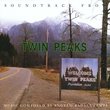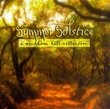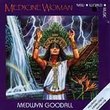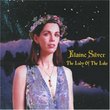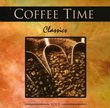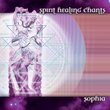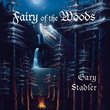| All Artists: Loreena McKennitt Title: Elemental (Bonus Dvd) Members Wishing: 1 Total Copies: 0 Label: Quinlan Road Release Date: 9/14/2004 Album Type: Limited Edition, Original recording remastered Genres: Folk, International Music, New Age, Pop, Rock Styles: Celtic, North America, Celtic New Age, Adult Contemporary, Adult Alternative Number of Discs: 2 SwapaCD Credits: 2 UPC: 081227656027 |
Search - Loreena McKennitt :: Elemental (Bonus Dvd)
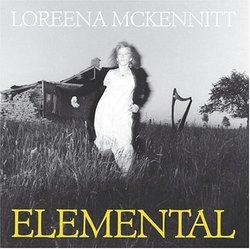 | Loreena McKennitt Elemental (Bonus Dvd) Genres: Folk, International Music, New Age, Pop, Rock
|
Larger Image |
CD DetailsSimilarly Requested CDs
|
CD ReviewsAlways good C. B Collins Jr. | Atlanta, GA United States | 07/09/2005 (4 out of 5 stars) "Loreena McKennitt is always good, her music never disappoints. There are three highlights to this CD, the first three songs. She starts with her interpretation of the traditional "Blacksmith" followed by a haunting version of "She Moved Through the Fair". However it is the third song that soars. Loreena has put William Butler Yeat's classic poem "Stolen Child" to music and the poem takes flight with her orchestration and vocals. The lyrics remain crisp and emotive with such lines as: Where dips the rocky highland Of sleuth wood in the lake There lies a leafy island Where flapping herons wake The drowsy water rats There we've hid our fairy vats Full of berries And of reddest stolen cherries. Come away oh human child To the waters and the wild With a faery hand in hand For the world's more full of weeping Than you can understand. Where the wave of moonlight glosses The dim grey sands with light By far off furhter rosses We foot it all the night Weaving olden dances Mingling bands and mingling glances Till the moon has taken flight To and fro we leap And chase the frothy bubbles whilst the world is full of troubles And is anxious in its sleep. Where the wandering water gushes From the hills above glen car in pools among the rushes that scarce could bathe a star we seek for slumbering trout and whispering in their ears give them unquiet dreams leaning softly out from ferns that drop their tears over the young streams. Away with us he's going the solemned eyed He'll hear no more the lowing Of the calves on the warm hillside or the kellte on the hob Sing peace into his breast or see the brown mice bob round and round the oatmeal chest. For he comes, the human child to the waters and the wild with a faery hand in hand for the world's more full of weeping than you can understand. McKennitt makes this wonderful poem come alive for a new generation. That alone is worth the price of the CD." Spare, sparkling Celtic ballads with subtle shades of things Brianna Neal | USA | 10/01/2006 (4 out of 5 stars) "This is Loreena McKennitt unplugged, on what is--to my knowledge--her first album. These are gentle, wistful songs, primarily minor in flavor and performed in a fairly traditional manner. "Elemental" is a short CD, only about 33 minutes long. Eight of its nine songs are vocals--mostly Loreena singing in her sweet, lilting voice to her own harp accompaniments, although gentle additions of acoustic bass, accordion, synthesizer, cello, guitar and occasional multitracks of her own voice sometimes enhance the pieces as well. "Carrighfergus" is a duet with singer and guitarist Cedric Smith, and Lullaby is a poem by William Blake, read by Douglas Campbell and accompanied by McKennitt's vocalise and instrumentation. Other guest artists include cellist Pat Mullin and acoustic bass player George Greer. There's none of the bodaceous intensity and world music instrumentations of McKennitt's later work (like "The Mask and the Mirror" and "The Book of Secrets") but a delicate, dreamy magic drifts through this album that is delightfully restful and soothing. And her deft, delicate, evocative arrangements of harp and harmony, even at this early stage of her career, stand out as something special. Follow Loreena McKennitt's development as a musician and composer by collecting all her wonderful works! Her next release after "Elemental" was "To Drive the Cold Winter Away," followed by "Parallel Dreams." Try also the work of Kim Robertson and Aine Minogue, two more elegantly innovative harpists and composers. " Elements of Style kjenfan | United States | 11/02/2005 (5 out of 5 stars) "With a voice as clear and lovely as a moonlit winter's night, "Elemental" introduces us to Canada's Loreena McKennitt. And as beautiful as it is, this is one introduction you'll not soon forget.
"Elemental," is Loreena McKennitt's 1985 debut release and is surely one of her finest. Although her style has become decidedly more complex over time, "Elemental" displays some of the now familiar aspects of that style. Here, as she does on later recordings, Loreena McKennitt combines the singing of traditional Celtic songs alongside her adaptations into song, of well-known poetic works. A look at McKennitt's website produced some interesting information that seems to explain the dramatic style evident in most of her work. According to the website, McKennitt was the recipient of a talent search award in 1978, representing her country that year and again in 1985 in international events. During those years she also distinguished herself as an actress/singer/composer in Canada's Shakespeare Festival. Thus, against this backdrop, the nine-track "Elemental" was recorded. Listen in and see how Loreena McKennitt draws us irresistibly into an enshrouded world wherein lost love and tragedy mercilessly await their moment. The album opens with McKennitt's adaptation of a traditional piece, "The Blacksmith." In an achingly pure voice, her subdued playing of the harp as the main accompaniment, McKennitt sets the theme with this song of love betrayed. Next, against a starkly laid backdrop of birdsong and softly ringing bells, McKennitt dazzles us with her interpretation of "She Moved Through the Fair." Though often thought of as a traditional piece, this lovely tune was actually written in the 20th century (though based on an older work). The next song, "Stolen Child," is Loreena's adaptation of a poem by the renowned Irish poet, W.B. Yeats. McKennitt's interpretation immerses the listener in an eerie atmosphere of mystery and sorrow. The fourth track, "The Lark in the Clear Air," is done as an instrumental, beautiful in its grace and simplicity. McKennitt's playing of the harp is perfectly suited to this short piece. "Elemental" next features another traditional Irish song, "Carrighfergus," with McKennitt in a duet with tenor Cedric Smith. The style here is quite well done, with Smith as the regretful love to the sorrowing McKennitt. The next three songs, "Kellswater," "Banks Of Claudy," and "Come By The Hills" are also McKennitt's arrangements of traditional pieces and are all strikingly beautiful. I had not actually heard of "Kellswater" before now, but it seems on the surface to be another song of love that may never come to fruition, made sadder still by the unwavering faith of its author. "Banks of Claudy" seems perhaps to be a variation of "There Was A Lady," and/or "Pretty Little Miss In The Garden." Aside from McKennitt's lovely vocals, the song is distinguished by its "lack" of tragedy. "Come By The Hills" is a poetic ode to the land itself, elegantly done, invoking a sense of yearning for such a place. The last track, "Lullaby" is an eerily, foreboding arrangement of a poem by William Blake, with McKennitt's calming vocals contrasted by the dark poetic recitation. It is dramatic and well done, anything but a lullaby. The appeal of "Elemental" to me is its simplicity of arrangement and the uniqueness Loreena McKennitt brings to each track. Beautifully sung, brilliantly chosen." |

 Track Listings (9) - Disc #1
Track Listings (9) - Disc #1